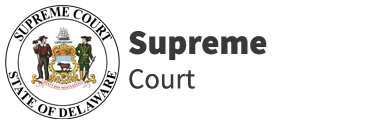Supreme Court Case Scheduling FAQs
How do you select cases for oral argument?
The Chief Justice, with input from the Clerk and the Chief Staff Attorney, makes an initial selection, based on the complexity of the case, the novelty of the arguments, the importance of the issues presented, and other factors. The basic standard remains as set forth in Supreme Court Internal Operating Procedure VIII.
Most important, if any Justice wants argument at any time, the Court holds oral argument.
How does the Court decide cases on the briefs?
Tradition has developed that the junior Justice on the panel circulates a memorandum to provide a starting point for consideration. That memorandum typically summarizes the key arguments, explains the important questions to be answered, and proposes an outcome. If the junior Justice believes the case would be best decided after oral argument, the junior Justice makes that proposal. The other Justices on the panel then respond to the initial memorandum, and discuss a proposed resolution. If they can agree on a resolution, the senior Justice assigns a member of the panel to prepare an opinion or order resolving the case. And, as discussed, if any member of the panel desires oral argument, oral argument is then held.
To better prepare for on briefs cases and to spread the Court’s workload more evenly, more senior members of the Court are assigned memoranda as well, so that the Justices can best position themselves to decide cases on the briefs in a timely and careful manner.
When does the Court sit en banc?
The Court sits en banc in cases of special seriousness (e.g., cases involving very serious felony appeals), where the case may require re-evaluation of prior precedent, or where the area of law is one that the Court and trial courts believe requires special attention to establish clear and predictable precedent. For example, for several years, the Court held en banc arguments in many cases involving the so-called PIP “No Fault” statute, 21 Del. C. § 2118, because there seemed a need to bring greater coherence to the statute’s interpretation.
Overall, the criteria set forth in Supreme Court Internal Operating Procedure X still applies as a general guide and states that the Court will sit en banc in death penalty cases, or when there is a possible disagreement of the panel, when there is a reasonable likelihood of modifying or overruling existing precedent, when two or more Justices vote to sit en banc, or when it is otherwise required by Court rule or statute.
Again, consistent with the Court’s desire to make sure that its deliberations are best designed to obtain agreement where possible and informed decisionmaking in all cases, if a panel of the court is not in unanimous agreement in a panel argument or an on briefs case (if the panel believes that the issue in the case over which there is initial disagreement is one that the entire Court should consider), the Court will go to oral argument en banc.
How does the Court approach the calendaring of cases during the year?
There is a natural and important cycle in the staffing of the Court. The Justices of the Court receive their primary legal assistance in cases set down for oral argument from their judicial law clerks, and Wolcott Fellows from the Delaware Law School. Judicial law clerks traditionally start their clerkships in August and leave the following summer around the same time.
Although the Justices are very hands-on, the reality is that in many of the cases before them, the appellate record is large, the briefs are not brief, and the parties’ work product results from the efforts of multiple lawyers and others on each side. For the Justice, the person who assists him on a case is typically a single young lawyer called a law clerk. Although the Justices take seriously their research, reading, writing, and editing responsibilities and devote the bulk of their time to these functions, those responsibilities are best carried out well with some able assistance, to help the Court generate the best quality and timely product feasible. For that reason, it is helpful to litigants that the law clerks who work with the Justices to help decide case work prospectively on cases, by helping the Justice prepare for oral argument and by listening to oral argument after being familiar with the case. This ensures that the Justices are best prepared for oral argument, and that the Justice assigned the task of writing the Court’s decision is able to promptly and expertly complete the assignment, and that the other Justices can comment and react in a timely and informed way.
Holding oral arguments during a time when law clerks are exiting and arriving is inefficient for the Court and not wise for informed litigants. Litigants deserve to have cases decided with the help of law clerks who had a chance to help their Justices prepare in an orderly way and not by scrambling to catch up by learning, often early in their clerkship, the record in a case that was already argued. Furthermore, the Court endeavors to have its law clerks be in what one Justice calls the “clean plate club,” which is to help their Justices complete all the cases assigned to them and argued during the clerks’ term before the clerks’ successors arrive.
Why do you not schedule oral arguments in non-expedited cases in July and August?
The previous answer explains a good deal of it. During July and August, the outgoing law clerks are working hard with their Justices to make sure that all the cases argued in the winter, spring, and early summer are timely and well decided. The outgoing law clerks also help the Justices with the orientation of new law clerks.
Is there another reason for not scheduling oral arguments in July and August?
Yes, and that involves the Court’s consideration for members of the Bar and litigants. During July and August, it is overwhelmingly likely that someone involved in a case has a planned vacation. Like it or not, families are often required to take vacation when their children are off from school.
When cases are not expedited, it therefore makes sense not to burden counsel and their families with a Supreme Court argument. Although the Court is typically receptive to requests for rescheduling, the Court also knows that counsel is reticent to ask, and might fly away from vacation just to do an argument or engage in other actions that are disruptive of important family time. The Court also realizes that some lawyers, regrettably, make it difficult if a colleague of the bar on the other side of the “v” is not available by making known to the Court that they are ready and anxious to proceed, and that the existence of such lawyers makes lawyers who are entitled to ask for a delay reluctant to do so.
Given the reasons explained previously why it is not good decisionmaking practice for the Court or litigants to have oral arguments at a time when the law clerks who sit through them will be gone during the time when the Court writes its decision, the Court finds it advisable to spend July and August making sure that it completes its work on cases argued through June in a timely manner.
Does that mean that the Court does not work in July or August?
No, it does not.
Not only is the Court working hard on its docket of previously argued cases, it schedules cases for resolution on briefs.
Most important, the Court is always open for arguments in exigent or special situations. In fact, in each of the last two years, the Supreme Court has held oral arguments in July and August in situations like this where there was a genuine need.
In one case, the Court held expedited proceedings, including several hearings, to deal with an emergency application involving a child on life support. By way of another example, the Court held argument in a business matter where immediate resolution was needed. The Court is always open in such situations. Likewise, July and August are very active months for the Justices in resolving cases. In July and August of the last two years, for example, the Court issued 174 orders and opinions. And unlike most other state Supreme Courts, the Delaware Supreme Court has no intermediate court of appeals to screen appeals, and hears all appeals as of right. The Court therefore handles a large volume of cases each year, is current in its docket, and is committed to remaining current.
Are there any other issues taken into account in scheduling?
Yes, two important ones.
First, the Court endeavors to schedule a number of cases each month that enables it to prepare well to consider each case, deliberate in an informed manner, and issue a well-reasoned and timely decision. Jamming too many non-expedited cases into a month only risks that the Court may have to set on briefs cases down for oral argument or from oral argument to en banc consideration, that they might resolve efficiently with more time for preparation. It also hazards that the Justices will not be as prepared for oral argument as is useful for them or the litigants.
Does that mean that the Court risks building up a backlog?
To the contrary, by a thoughtful approach to scheduling, the Court has kept up its historical record of being the most prompt appellate court in the nation. The Court has established goals for timely resolution of its docket. Last year, the Court’s appeals were decided an average of 29.7 days from the date of submission to the date of final decision. In addition, in 98.6% of the appeals decided in FY 2016, the Court met the standard for the Delaware Judiciary for deciding cases within the date of submission. The Court also met its performance measure for the disposition of 75% of all cases within 290 days of the date of filing a notice of appeal, exceeding this objective by disposing of 87% of all cases within that timeframe. The Delaware Supreme Court has historically been a national leader at the appellate level in the timeliness with which it hears and resolves appeals. This continues to be the case and, if anything, the Court is even more current in its case load.
What is the other issue taken into account in scheduling?
The second issue relates to the Court’s awareness that there are traditional holidays that are important to lawyers and their families. Few lawyers or clients want to be in court on the Wednesday before Thanksgiving, or the Wednesday after New Year’s Day or Labor Day. There are also weeks of the year where many schools have spring breaks.
For these reasons, the Court endeavors to take important holidays into fair consideration, and schedule its argument dates with an eye to avoiding dates that might unduly impair the ability of lawyers to enjoy family time. Lawyers work very hard, and the Delaware Supreme Court has high expectations for them. But, lawyers need and deserve family and personal time, and taking fair recognition of traditional holidays is a common sense way to be courteous to our Bar, and in no way compromises the ability of the Court to decide its cases with alacrity.


